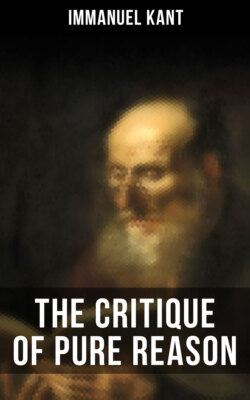Читать книгу The Critique of Pure Reason - Immanuel Kant - Страница 46
На сайте Литреса книга снята с продажи.
§§ 21
ОглавлениеOn the other hand, in the transcendental synthesis of the manifold content of representations, consequently in the synthetical unity of apperception, I am conscious of myself, not as I appear to myself, nor as I am in myself, but only that “I am.” This representation is a thought, not an intuition. Now, as in order to cognize ourselves, in addition to the act of thinking, which subjects the manifold of every possible intuition to the unity of apperception, there is necessary a determinate mode of intuition, whereby this manifold is given; although my own existence is certainly not mere phenomenon (much less mere illusion), the determination of my existence24 Can only take place conformably to the form of the internal sense, according to the particular mode in which the manifold which I conjoin is given in internal intuition, and I have therefore no knowledge of myself as I am, but merely as I appear to myself. The consciousness of self is thus very far from a knowledge of self, in which I do not use the categories, whereby I cogitate an object, by means of the conjunction of the manifold in one apperception. In the same way as I require, for the sake of the cognition of an object distinct from myself, not only the thought of an object in general (in the category), but also an intuition by which to determine that general conception, in the same way do I require, in order to the cognition of myself, not only the consciousness of myself or the thought that I think myself, but in addition an intuition of the manifold in myself, by which to determine this thought. It is true that I exist as an intelligence which is conscious only of its faculty of conjunction or synthesis, but subjected in relation to the manifold which this intelligence has to conjoin to a limitative conjunction called the internal sense. My intelligence (that is, I) can render that conjunction or synthesis perceptible only according to the relations of time, which are quite beyond the proper sphere of the conceptions of the understanding and consequently cognize itself in respect to an intuition (which cannot possibly be intellectual, nor given by the understanding), only as it appears to itself, and not as it would cognize itself, if its intuition were intellectual.
